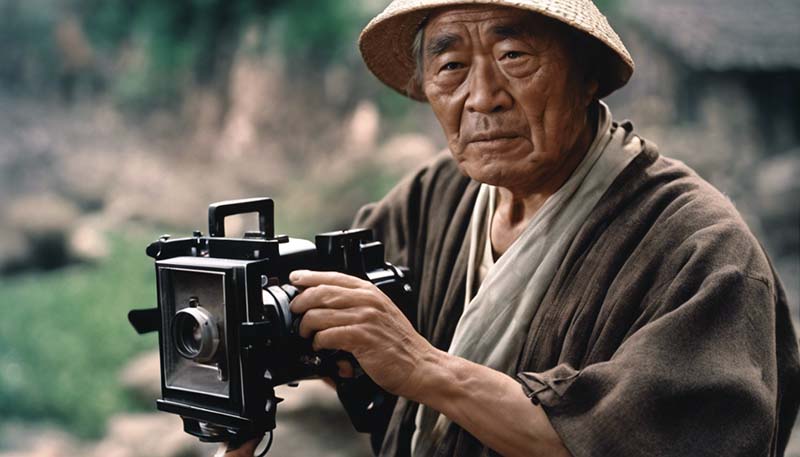The Humanist Cinema of Akira Kurosawa: A Look at His Enduring Legacy
The Humanist Cinema of Akira Kurosawa: A Look at His Enduring Legacy
Akira Kurosawa, one of the most influential filmmakers in the history of cinema, left an indelible mark on the art form with his humanist approach to storytelling. His films are not just visual masterpieces but also profound explorations of human nature, ethics, and the complexities of existence. This article delves into the humanist cinema of Akira Kurosawa and examines his enduring legacy in the world of film.
Introduction
Akira Kurosawa (1910-1998) was a Japanese film director, screenwriter, and producer who is widely regarded as one of the most important filmmakers in the history of cinema. His work has had a significant impact on international cinema and has been a major influence on a wide range of filmmakers, from George Lucas and Steven Spielberg to Martin Scorsese and Francis Ford Coppola.
The Humanist Philosophy
Humanism is a philosophical and ethical stance that emphasizes the value and agency of human beings, individually and collectively, and generally prefers critical thinking and evidence over acceptance of dogma or superstition. Kurosawa's films are infused with humanist themes, focusing on the struggles, aspirations, and moral dilemmas of his characters.
Advertisement
Human Nature and Morality
Kurosawa's films often explore the duality of human nature, presenting characters who are capable of both great good and great evil. His characters are complex and multifaceted, reflecting the ambiguity and uncertainty of real life. This focus on the moral and ethical dimensions of human behavior is a hallmark of his humanist approach.
The Individual and Society
Another key aspect of Kurosawa's humanism is his examination of the relationship between the individual and society. His films often depict individuals who are at odds with the societal norms and expectations, highlighting the tension between personal integrity and social conformity.
Key Films and Themes
Kurosawa's filmography is extensive and diverse, but several films stand out as particularly representative of his humanist cinema:
"Rashomon" (1950)
"Rashomon" is perhaps Kurosawa's most famous film and a prime example of his humanist approach. The film is structured around a central mystery, with four different characters providing conflicting accounts of the same event. "Rashomon" challenges the viewer to question the nature of truth and the reliability of human perception.
"Seven Samurai" (1954)
"Seven Samurai" is a classic tale of heroism and sacrifice, with a group of samurai coming together to protect a village from bandits. The film explores themes of honor, duty, and the human capacity for both selflessness and greed.
"Yojimbo" (1961)
"Yojimbo" is a samurai film that tells the story of a wandering ronin who becomes embroiled in the power struggles of a small town. The film is a critique of the corrupting influence of power and the destructive nature of violence.
"Ran" (1985)
"Ran" is a late-career masterpiece that reimagines Shakespeare's "King Lear" in feudal Japan. The film is a meditation on the themes of aging, power, and the human cost of ambition.
Legacy and Influence
Kurosawa's influence on cinema is immense. His innovative storytelling techniques, such as the use of multiple perspectives and the blending of different genres, have been widely adopted by other filmmakers. His humanist approach to cinema has also inspired a generation of directors to explore the complexities of human nature and the moral dilemmas faced by individuals in society.

International Acclaim
Kurosawa received numerous international awards and accolades throughout his career, including the Academy Award for Best Foreign Language Film for "Der Suzuka" (1951) and an Honorary Academy Award for his lifetime contribution to the art of film in 1990.
Impact on Other Filmmakers
Kurosawa's work has had a profound impact on many of the world's most celebrated filmmakers. George Lucas has cited "The Hidden Fortress" (1958) as a major influence on the original "Star Wars" film, while "Rashomon" has been a touchstone for countless filmmakers exploring narrative structure and the nature of truth.
Conclusion
Akira Kurosawa's humanist cinema continues to resonate with audiences around the world. His films are not only visually stunning and narratively compelling but also deeply philosophical and ethically complex. Kurosawa's legacy as a filmmaker is a testament to the power of cinema to explore the human condition and to challenge viewers to think critically about the world around them.